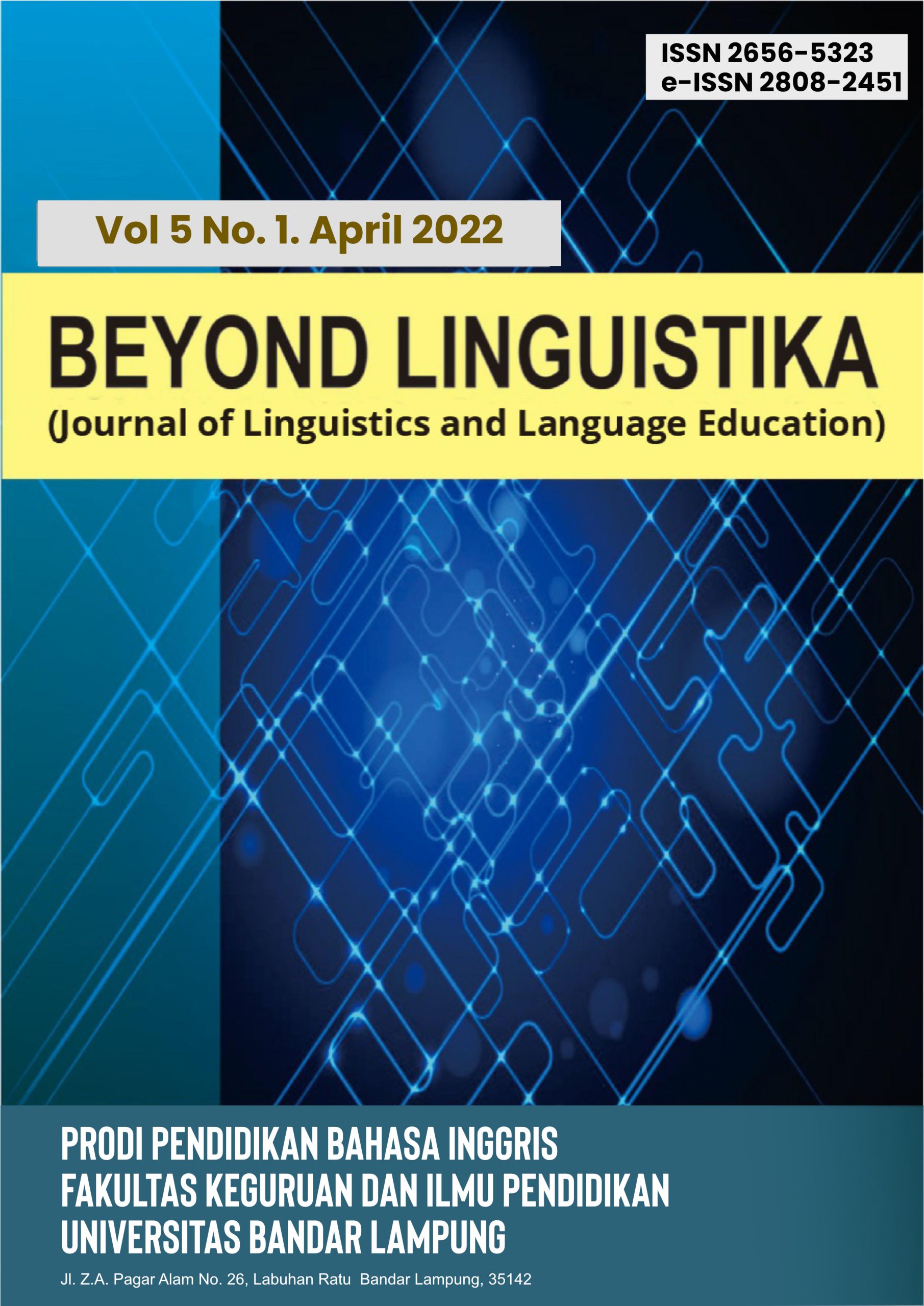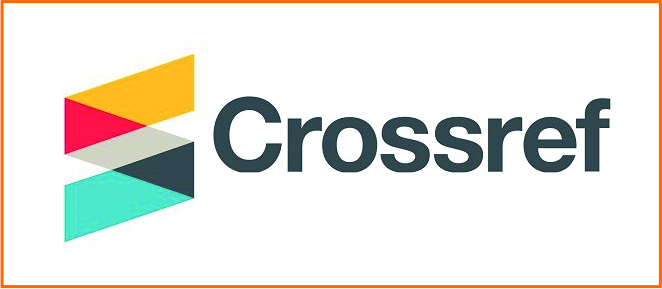An Analysis of Using Duolingo Application in Improving Students’ Vocabulary Mastery at 10th Grade of SMA YADIKA Bandar Lampung
Abstract
Keywords
Full Text:
PDFReferences
REFERENCES
Alqahtani, M. (2015). The
Importance of Vocabulary in
Language Learning and How to Be
Taught. International Journal of
Teaching and Education 3.
Bromley, K. (2004). The Language
and Literacy Spectrum. New York:
The New York State Reading
Association.
Bull, S & Ma, Y. (2001) Raising
learner awareness of language
learning strategies in situations of
limited recourses. Interactive
Learning Environments, 9 (2), 171-
Creswell. J.W. (2012). Educational
Research. Planning, Conducting and
Evaluating Quantitative and
Qualitative Research. Fourth Edition.
Duman, G., Orhon, G. & Gedik, N.
(2015) Research trends in mobile
assisted language learning from
to 2012. ReCALL,27(2): 197–
https://doi.org/10.1017/S0958344014
61
Vol. 3 No. 2 Oktober 2020 ISSN 2656-5323
Eady, M. J. (2014). A Guide to
Building Good Sentence Structure
(February 2009).
Godwin-Jones, R. (2011) Mobile
apps for language learning.
Language Learning & Technology,
(2): 2–11.
Golonka, E. M., Bowles, A. R.,
Frank, V. M., Richardson, D. L. &
Freynik, S. (2014) Technologies for
foreign language learning: A review
of technology types and their
effectiveness. Computer Assisted
Language Learning, 27(1): 70–105.
https://doi.org/10.1080/09588221.20
700315
Jaskova, V. 2014. Duolingo as a
New Language Learning Website
And Its Contribution to E-learning
Education. Masaryk University.
Krashen, S. (2014). Comprehensible
input-based methods versus
traditional methods.
https://skrashen.blogspot.hk/2014/08
/comprehensible-input-basedmethods-vs.html
Linse. (2005). The Effect of Question
Generation Strategy on Iranian EFL
Learners’ Reading Comprehension
Development. Canadian Center of
Science and Education, p 69.
Munday, P. (2016). The case for
using DUOLINGO as part of the
language classroom
experience/DUOLINGO como parte
del curriculum de las clases de
lengua extranjera. Revista
Iberoamericana de Educación a
Distancia, 19(1), pages 83-101.
White, K. (2017). “Duolingo: All the
Buzz” The linguistic.
(https://www.academia.edu/9700219/
Duolingo_All_the_buzz) , Vol/53
No/1 2014.
DOI: http://dx.doi.org/10.36448/bl.v3i2.1822
Refbacks
- There are currently no refbacks.















